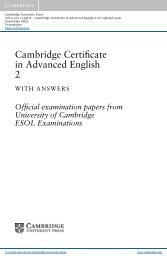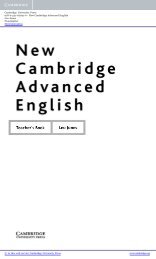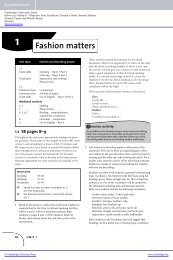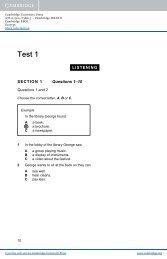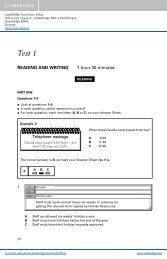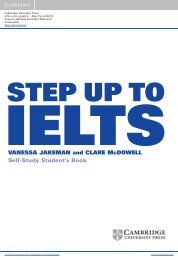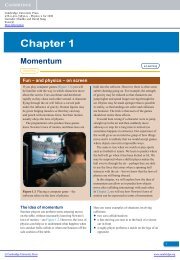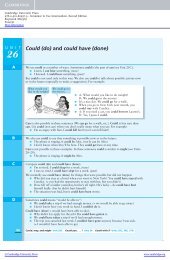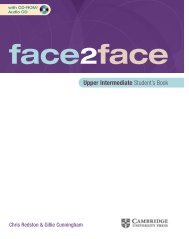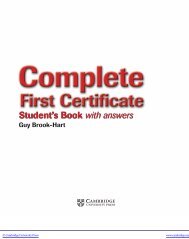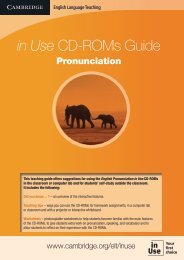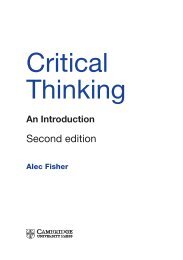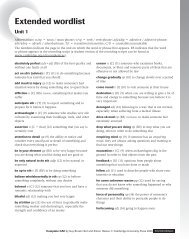Skills for Study Level 2 Teacher's Book - Cambridge University Press
Skills for Study Level 2 Teacher's Book - Cambridge University Press
Skills for Study Level 2 Teacher's Book - Cambridge University Press
Create successful ePaper yourself
Turn your PDF publications into a flip-book with our unique Google optimized e-Paper software.
IntroductionC Investigating Understanding more about thetypes of learning at universityFinding source materialsUnderstanding source referencesUsing library cataloguesD Reporting: speaking Participating in tutorialsGenerating and organizing ideasReflecting on your discussionskillsE Reporting: writing Understanding different types ofacademic writingUsing a process approach toessay writingUnderstanding essay questionsDeveloping a thesis statementUsing sources in your writingIdentifying and usingcollocationsUsing relative clauses toinclude essential in<strong>for</strong>mation insentencesUsing relative clauses to includenon-essential in<strong>for</strong>mation insentencesRecognizing and usingthe language of academicdiscussionsReferring to other people’s ideasin discussionsUnderstanding general featuresof academic writingStating aims in a <strong>for</strong>mal registerUsing compound nounsWithin each Part, the initial sections explore specific functional skills or areas ofacademic language (e.g. Developing a thesis statement). These areas are exploredin detail using a series of controlled tasks which develop students’ awareness, andgive opportunities <strong>for</strong> discussion and practice of the skills and language used in thatarea. A further section within each Part (called the Unit Task in the <strong>Skills</strong> books,and the Lesson Task in the Language books) draws together the different skills orlanguage areas covered in that Part to give opportunities <strong>for</strong> use within the contextof authentic, frequently interactive, academic tasks. The Language books providea further section at the end of each Part entitled Review and Extension, whichallows students to consolidate and develop their understanding of the languageitems studied.Features of the courseTexts and dataIt is important that students engage with authentic academic texts, yet the linguisticand cognitive difficulty of fully authentic academic texts can interfere with thedevelopment of key skills if students are expected to use them from the outset. Forthis reason, many of the texts which appear in the course have been purposefullywritten to suit specific learning aims. In some cases, fully authentic texts have beenused, or slightly modified to allow a focus on specific language features. In mostTeacher’s Notes <strong>Skills</strong> <strong>for</strong> <strong>Study</strong> 2 ∙ Introduction 4



